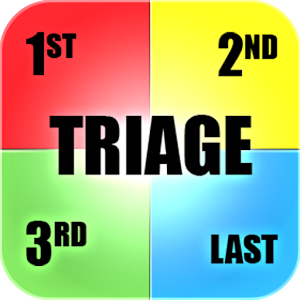Now that the majority party in the U.S. Congress has introduced its replacement for the Affordable Care Act – a “replacement” in the sense that it replaces federal insurance subsidies with a new form of individual tax credits – perhaps we should revisit the issue we addressed in our last post. There, we argued that, in the view of the halakhah, “the provision of affordable care to the entire community is very much the responsibility of the community itself, acting through its government.” The newly-proposed plan appears to take a major step away from that goal and for that reason must be judged deficient from a halakhic perspective. Continue reading Where the Buck Stops
Category Archives: Medical Ethics
On Medical Care, Mitzvah, and Public Responsibility
The United States Congress is struggling – again – over the future of the Affordable Care Act (ACA, or “Obamacare”) of 2010. As Jewish organizations weigh in on the debate, the question will inevitably arise: what does Jewish tradition, and specifically the halakhic tradition, teach us concerning the role of the government in the provision of medical care in a modern democratic society? And that, of course, is a difficult question to answer. We know that the halakhah, based in sources that reflect a social, economic, and political context quite different from our own, does not speak with precision to most of the particular issues our society confronts today.[1] To put this differently: on its face, the halakhah doesn’t tell us whether the ACA should be retained, repealed, or amended. On the other hand, Jewish law does contain some important basic teachings about the nature of the good society that can and ought to guide our thinking on public questions. Yes, we have to resist the temptation of learning too much detail from broad, general statements in the texts. We’ve discussed that problem on this blog. But there are occasions when the tradition actually gives us enough practical detail, if not to answer our questions precisely, then at least to point the way for our thinking. And the issue of national healthcare policy is one of those occasions. Continue reading On Medical Care, Mitzvah, and Public Responsibility
The Jewish Position(s) on Triage, Part Two
Amy Scheinerman has called our attention to an effort by the Ethics Committee of the Israeli Medical Association (IMA) to establish a policy of triage in terrorism incidents that prioritizes the victims – both Jewish and Arab – over the perpetrators. The policy was adopted in 2008 but abandoned last year on the grounds that the policy does not conform with international standards of triage. I – Mark Washofsky, that is – am not sure about that – what, exactly, are the international standards of triage? – and perhaps some of our readers can help us with the question. Of particular interest to this blog is the fact that the IMA justified its policy as a Jewish one, justifying it by appeal to traditional text. The implication is that Jewish tradition or “the” halakhah supports this particular approach to triage. I’m not sure about that, either. Continue reading The Jewish Position(s) on Triage, Part Two
Triage in Terrorist Incidents
From our colleague Amy Scheinerman:
It is believed that the practice of triage originated in France toward the end of the 18th century thanks to Napoleon’s surgeon Dominique-Jean Larrey (1766-1842), who invented the Ambulance Volante (“flying ambulance”), a corps of horse-drawn ambulance-wagons and personnel that shuttled casualties from the battlefield to a base hospital in less than 15 minutes. Dr. Larrey also introduced triage – from the French “trier” meaning “to sort out” or “select” – whereby a surgeon was present on the battlefield to administer to the needs of the wounded and determined that (in his words) the most “dangerously wounded should receive the first attention, without regard to rank or distinction. They who are injured in a less degree may wait until their brethren-in-arms, who are badly mutilated, have been operated and dressed, otherwise the latter would not survive many hours; rarely until the succeeding day.” Triage, which arose in the context of war and was developed to address mass casualties, is used today not only in warfare, but in modern hospital emergency rooms. In the venue of a hospital on a normal day, it is far easier to sort out the most serious cases and address their needs first than it is in the chaos and pandemonium than can ensue from a terrorist action. When limited resources are available, and seeing to the needs of one injured person might have grave consequences for another who is not immediately attended to, the original philosophy of triage comes under scrutiny. Continue reading Triage in Terrorist Incidents

